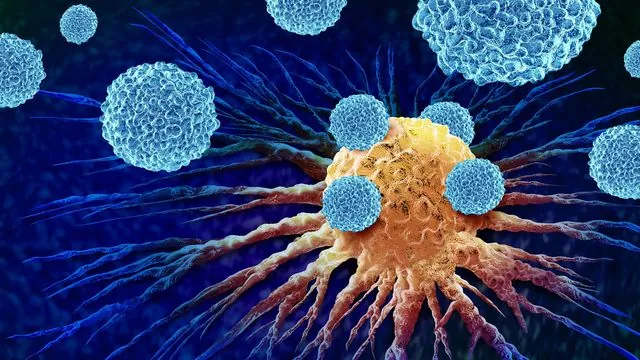
New Guidelines Revolutionize Radiation Therapy for Rectal Cancer: What You Need to Know!
2024-12-11
Author: Ming
Introduction
In an exciting development for the field of oncology, the American Society for Radiation Oncology has released updated clinical practice guidelines concerning radiation therapy (RT) for operable rectal cancer, which were published online on November 25 in Practical Radiation Oncology. This update is crucial for both medical professionals and patients navigating treatment options.
Key Issues Addressed
Dr. Jennifer Y. Wo of Massachusetts General Hospital in Boston leads a team of experts who delve into three significant issues regarding RT for operable rectal cancer: when to use neoadjuvant RT, how to select the appropriate regimen, and the criteria for considering nonoperative management (NOM) or local excision after definitive or preoperative chemoradiation.
Neoadjuvant Radiation Therapy Recommendations
The guidelines emphasize that neoadjuvant RT is highly recommended for patients diagnosed with stage II to III rectal cancer. However, there's a notable shift for certain patients: for those with a favorable response to neoadjuvant chemotherapy or those who are at a lower risk of locoregional recurrence, the omission of neoadjuvant RT may be beneficial and is conditionally advised.
Total Neoadjuvant Therapy (TNT) Approach
For patients classified as having T3 to T4 and node-positive rectal cancer, the Total Neoadjuvant Therapy (TNT) approach is clearly endorsed. This regimen incorporates chemotherapy either prior to or following long-course chemoradiation and is deemed essential for those at a heightened risk for locoregional recurrence. Interestingly, a conditional recommendation is also made for implementing TNT following short-course RT with subsequent chemotherapy.
Nonoperative Management Recommendations
Moreover, for patients prioritizing NOM, the guidelines strongly endorse concurrent chemoradiation paired with subsequent consolidation chemotherapy. The selection of the RT dose and regimen, as well as the therapy approach, should be decided through a collaborative, multidisciplinary consensus.
Conclusion and Importance of Updated Guidelines
Dr. Wo highlighted the significance of these updated treatment strategies, noting, "These emerging treatment paradigms allow for more personalized and nuanced recommendations tailored to each individual patient's level of risk and priorities, striking a balance between effective cancer control and the preservation of quality of life."
As advances in treatment continue to evolve, it’s crucial for patients and caregivers to stay informed about these new guidelines that aim to enhance outcomes while also considering the quality of life post-treatment.
With multiple authors disclosing ties to the biopharmaceutical industry, it's important to approach this evolving landscape of treatment options with both optimism and caution. Are you or someone you know facing a rectal cancer diagnosis? Don't miss out on these pivotal updates that can steer the course of treatment decisions!



 Brasil (PT)
Brasil (PT)
 Canada (EN)
Canada (EN)
 Chile (ES)
Chile (ES)
 España (ES)
España (ES)
 France (FR)
France (FR)
 Hong Kong (EN)
Hong Kong (EN)
 Italia (IT)
Italia (IT)
 日本 (JA)
日本 (JA)
 Magyarország (HU)
Magyarország (HU)
 Norge (NO)
Norge (NO)
 Polska (PL)
Polska (PL)
 Schweiz (DE)
Schweiz (DE)
 Singapore (EN)
Singapore (EN)
 Sverige (SV)
Sverige (SV)
 Suomi (FI)
Suomi (FI)
 Türkiye (TR)
Türkiye (TR)